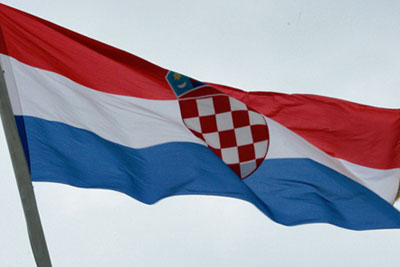On 22 January the people of Croatia made history by making a clear choice in favour of joining the European Union. The finishing line of 1 July 2013 is in sight, and Croatia is on course to become the 28th member of the EU, after it first applied nine years ago.
The next step is Parliamentary approval across the EU. For the UK, laying a statement before Parliament is the first stage of the process. An Act of Parliament must then be passed before the Treaty can be approved by the UK.
Croatia has made great strides in reform over the past nine years, tackling corruption and organised crime, and protecting fundamental rights. We concluded the accession negotiations and signed the Accession Treaty once Croatia had met the rigorous criteria set for all aspiring EU members and was on track to assume fully the obligations of membership from the date of accession. Of course, Croatia still has work to do. The EU Commission will comprehensively monitor Croatia’s continued reforms between now and July 2013, and we will closely scrutinise their reports to see evidence of progress, particularly on judicial reforms.
The UK believes membership of the EU should be open to any European country which wants to join and which meets the rigorous accession criteria. Croatia has shown it clearly shares the values to which the EU aspires, so I welcome the decision of the Croatian people and I’m very pleased to welcome Croatia on the road to becoming a full EU member state.
It’s evident that the balance of the world’s economic power and political weight is shifting and if the EU is to continue to grow and prosper, we must remain outward looking. The EU has the largest single market in the world (over 550 million people), and the bigger it is the more we all benefit. So joining the EU will give Croatia full access to the European single market, helping boost trade and thereby enhancing its internal growth prospects. Importantly for the UK, it will also open up opportunities for British businesses to benefit from increased trade and investment opportunities.
Europe also has a lot to gain from Croatia’s strong network of relationships and influence in the Western Balkan region. It’s clear we need to build partnerships with regional and emerging powers and Croatia’s relationship with other prospective members such as Turkey can only help as the EU looks outward and seeks greater power and influence in world affairs.
The accession of new members helps to promote a peaceful, secure and stable Europe, based on a firm foundation of democracy, civil rights and respect for the law. Since 1989 freedom, democracy and the rule of law have been increasingly sustained and strengthened in Central and Eastern Europe and the magnet has largely been the EU, showing that EU enlargement is a vital draw for regional cooperation. The prospect of membership has a transformational power because countries wishing to join have to meet rigorous accession criteria. It’s evident that Croatia’s commitment to joining the EU and the significant reforms it has made in order to do so are beginning to pave the way for other western Balkan countries. We now look to Croatia to demonstrate continued progress on its reform agenda so we can welcome it as a full EU member in July 2013.
Statement on accession of the Republic of Croatia to the European Union.

